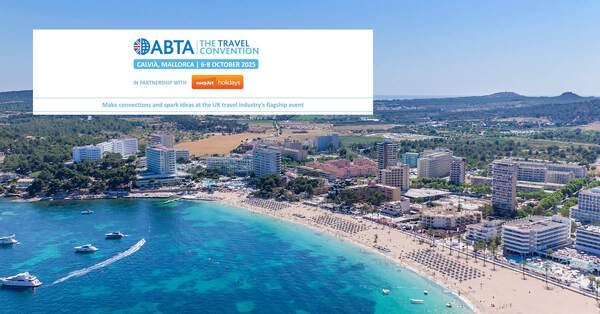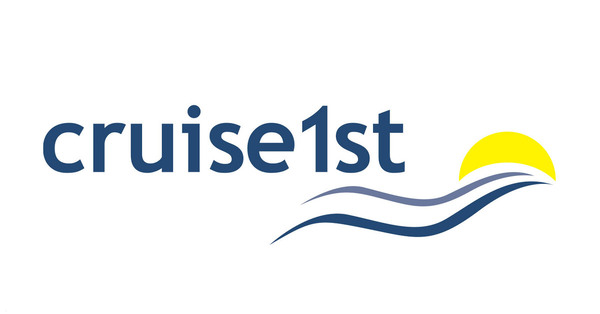You are viewing 1 of your 2 free articles
Special Report: Atol consultations, your questions answered
Lee Hayhurst takes a detailed look at two consultations issued by the CAA and Department for Transport on revised package travel regulations last week, with the help of expert industry lawyer Rhys Griffiths of Fieldfisher
Why is the industry being asked for its views on new Atol regulations?
Two consultations have been issued, one by the Department for Transport (DfT) and one by the Civil Aviation Authority (CAA), which runs the Atol protection scheme for package holidays.
The DfT’s ‘Updating consumer protection in the package travel sector’ consultation seeks views on Atol changes as the UK implements the new EU Package Travel Directive (PTD) into law.
This must be enacted by July 1 after the new Package Travel Regulations 2018, drafted by the Department for Business, Energy and Industrial Strategy, have been laid before Parliament.
The CAA must update the Atol scheme to reflect changes in the legal framework that underpins it. Its ‘Modernising Atol’ consultation sets out the ‘standard terms’ by which Atol-holders, including accredited bodies’ members, must operate.
It also outlines updates not required under the new PTD, like enforcement and a new CAA system to produce Atol Certificates.
Griffiths’ view: Both consultations give a clear indication of how government intends to revise the Atol scheme and they now provide the travel industry with the opportunity to have its say by March 23.
The Atol regulations 2012 will remain in place – we will not have an entirely new scheme. Rather the government intends to amend and tinker with the existing system so that it is brought into line with the new PTD.
There will still be the basic obligation on those who “make available flight accommodation in the UK to obtain a licence from the CAA unless they are an airline or can bring themselves within one of the exemptions.
Why are the regulations being updated?
New EU rules were agreed to reflect the changing travel sector to ensure consumers are offered financial and other protections, like repatriation in the event of company failure. The CAA consultation states: “The UK has a dynamic travel industry that is expanding as greater numbers of people seek to travel. It is important to review regulation and ensure that it is comprehensible for travel businesses, and that it delivers the clear and robust protection holidaymakers expect.”
How do the new rules change the definition of a package?
Flight-Plus packages will cease to exist as the definition of a package is broadened. The UK brought in the Flight-Plus Atol to capture so-called dynamic packages. The new PTD expands packages to cover arrangements “sold on the basis of multiple contracts”. Flight-Plus Atol Certificates will be relabelled ‘Package sale – multiple contract’.
This may affect firms’ licensable businesses, but under transitional arrangements only those that see an increase must update their Atol. Others will not be required to make a change before their next Atol renewal.
A contentious aspect of the new PTD is new Linked Travel Arrangements (LTAs), which are proposed to not come under Atol.
Griffiths’ view: The Atol regulations will capture tour operators and travel agents selling flight-only or flight-inclusive packages, as it does today, although the definition of a package has been significantly broadened so that it includes most Flight-Plus packages. As a result, Flight-Plus will no longer exist and it is being deleted from the Atol regulations.
What are Linked Travel Arrangements?
LTAs are a ‘looser’ combination of products. Intended to capture click-through online sales, they provide financial protection only in the event of insolvency. Described by independent Atol experts as a “poisoned chalice” and the “unloved child” of the new PTD, it is proposed LTAs will be regulated by Trading Standards, against the stated wishes of the industry in a previous consultation.
In stark contrast to the UK’s legal interpretation, in Germany LTAs are seen as offering agents the ability to sell split-contract packages and avoid full tour operator liabilities. However, UK regulators consider LTAs “confusing” and “complicated”. LTAs will be reviewed by the EC after two to three years.
Griffiths’ view: All LTAs will be left for BEIS to deal with in the new PTRs which are due to be laid before Parliament after Easter.
This is controversial and at odds with what the industry said it wanted. The industry said that it wanted flight LTAs to be included within the Atol and government promised that it would do so.
The volte-face has been driven by the CAA’s strong concerns about including flight LTAs within the Atol. It is concerned doing so will pollute the ATOL brand because there is a marked difference between the insolvency protection provided under a normal Atol sale and the insolvency protection provided for flight LTAs.
Government says, quite rightly, it does not have the discretion to align flight LTA coverage with Atol coverage because the new PTD is a “maximum harmonisation” directive. This means that it must be implemented in strict accordance with its terms.
As a result of this mismatch between Atol and LTA protection government has decided to put flight LTAs outside of Atol. However, when one digs a little deeper into the consultations, it transpires that government’s proposition is an illusion.
Atol will still require travel companies to protect flight-only sales. If a travel company facilitates the sale of flight LTAs in the UK, that travel company will have to protect the flight element of the LTA using under Atol. It is questionable whether this arrangement complies with the “maximum harmonisation” requirements of the New PTD.
The anomaly might be acceptable to most given the industry wanted flight LTAs to be included within Atol. However, the government’s plans also introduce an administrative headache for travel companies facilitating flight LTAs.
If a flight LTA contains multiple components which have to be financially protected the travel company will have to arrange split-protection for the customer. The flight will be covered by Atol, and the hotel will be covered by one of the PTR options. This is going to make compliance with the regulations much more complicated and confusing for the consumer than what it needs to be.
The new EU PTD is intended to harmonise protection across member states in the European Economic Area (EEA) and enable more cross-border business. How will this work in practice?
The 2016 Atol consultation found broad support for the switch from “place of establishment” to a “place of sale” regime because respondents said it would enhance their ability to sell Atol-protected holidays across European markets without needing to comply with individual member states’ schemes.
The intention of the new PTD is to harmonise holiday consumer protection across Europe to a consistent level to ensure that insolvency protection rules are not a barrier to the free movement of services.
The UK’s Civil Aviation Act 1982 has already been amended to allow this to happen and not the Atol regulations need to be updated to reflect that.
Currently the CAA issues Atol licences to some firms based in the EEA despite them being technically exempt. However the CAA is not able to enforce the same regulatory standards on these firms that are voluntarily participating in Atol and the position is described as “unsatisfactory” in the CAA consultation.
Under the new arrangement these EEA companies will no longer be issued Atols and will be able to trade under the rules in their country of origin. If they want to retain an Atol they will have to reorganise their business so they have a place of establishment in the UK.
For UK firms all their EEA business will come under Atol meaning the CAA will become responsible for repatriating non-UK EEA holidaymakers to their country of origin in the event of an airline collapse.
Griffiths’ view: It is currently quite complicated to sell package holidays across the EEA because there is a fractured system for insolvency protection. In general, travel companies have to comply with the insolvency protection rules of each place of sale.
This will change under the new PTD. An organiser may use the insolvency protection arrangements of its place of establishment to cover all its EEA-wide sales. Regulators of the place of sale will not be allowed to impose any additional requirements.
This is potentially very attractive for UK-based travel companies as they will be able to use Atol to cover flight-inclusive package sales throughout the EEA.
What is not clear is whether organisers must use the insolvency protection scheme of the place of its establishment for all EEA sales, or whether it can instead opt to take out insolvency protection in the place of sale if it prefers that option.
There may be good reasons why a travel company might want to take this approach. Certain insolvency protection schemes (such as Atol) have strong brand value in the local market and so a non-UK travel company may want to obtain an Atol.
The government proposes to allow non-UK EEA-established travel companies to sell into the UK using the insolvency protection rules of the UK if they so wish. However, those travel companies will only have available to them the PTR options of bonding, insurance and a trust account.
They will not be allowed to apply for an Atol, which will be reserved for UK-based organisers only. This is good news for UK-based travel companies as using the Atol badge may give them an advantage over their non-UK competitors. However, non-UK travel companies may challenge this arrangement on the basis that it does not comply with the EU’s rules which prohibit a regulator from discriminating against companies on the basis of nationality.
More of a surprise is that the Atol regulations will not offer UK-based travel companies the same option as non-UK travel companies in being able to decide whether to comply with the insolvency protection rules of the place of establishment or the place of sale.
UK-based travel companies will have to include all EEA sales of flight-inclusive packages within the Atol scheme. This may be inconsistent, but ultimately the administrative convenience of using Atol to cover all EEA sales may outweigh the lack of flexibility for UK-based travel companies.
The proposed changes seek to close the so-called ‘agent for the consumer’ loophole in the regulations. What does this mean and what will be it’s likely impact?
The ‘agent for the consumer’ loophole has been used by some travel agents who argue they do not fall within the scope of Atol as they are not the travel organiser.
Under the new rules it is proposed that Atol is extended to firms that facilitate offering flight packages to consumers in certain circumstances. The CAA consultation says:
“The draft regulations propose to insert new provisions…which will require that those procuring flights as agent for the consumer or acting as an intermediary in facilitating flight sales are required to hold an Atol in certain circumstances.
“Where an intermediary is involved in the payment for a flight in one of the ways listed in Regulation 9B [see below] they will have to hold an Atol or be exempt. This requirement does not apply if the intermediary is only transferring fund and has no other involvement in facilitating the flight sale.”
Griffiths’ view: The Government proposes finally to close the loophole which has put travel companies acting as an agent for the consumer outside of the Atol. There will be a new regulation which specifically requires those which procure flights as an agent for the consumer to be licenced.
However, what is of more interest is the further extension of the Atol to any company which “facilitates” the making available of flight accommodation by another person (the “Flight Supplier”). Such facilitators will now be caught by the Atol if they (i) receive and pass on in whole or part the customer’s money to the Flight Supplier; (ii) arrange for the customer to make a payment directly to the Flight Supplier; or (iii) receive a payment from the Flight Supplier as a consequence of the flight booking.
The concept of facilitation is very broad. There are many companies which provide a facility for travel companies to make flight accommodation available to consumers in the UK – metasearch, Google, Internet Service Providers and companies which licence white label travel companies to use their brand and website to sell flight-inclusive arrangements.
The only real limitation on whether these facilitators are caught by Atol is that they must also satisfy one of the three payment conditions described above.
The broadest condition is the third. This is likely to capture the cost-per-acquisition pricing model used by some intermediaries which do no more than advertise and so this new concept has the potential to bring within the scope of Atol a number of new business models.
What are other proposed key changes?
• Extended exemption from Atol for flight-only sales
This exemption relates to sales of confirmed airline tickets in circumstances where the airline is paid in full at the time the consumer makes the booking regardless of how the payment is made. This exemption will be re-labelled ‘Flight-Only ticket fully paid exemption’.
This places consumers who buy airline tickets direct from the airline in the same position as those who buy from a third party but pay immediately on the same regulatory footing in that Atol is not required and is a step towards a levelling of the playing field.
Griffiths’ view: This exemption will now apply regardless of how the airline is paid and even if the travel company uses its own credit card. What matters is that the airline is paid in full and the customer receives a confirmed ticket at the time the consumer makes the booking and pays the travel company. This is likely to apply to many online travel agents who pay the airline in full using a virtual prepaid credit card when the customer books, and issues a confirmed ticket immediately to the customer.
• The CAA will get new powers to fine firms that contravene Atol rules.
Currently the CAA can pursue a criminal prosecution or revoke licences but this is considered “imperfect for tackling some infringements” and involves “relatively severe” penalties for what can be minor infringements.
The DfT wants to grant the CAA greater civil powers to enforce the Atol regulations and has proposed these range from fixed monetary penalties, discretionary requirements including variable monetary penalties, and compliance and restoration notices, stop notices and enforcement undertakings.
• The CAA wants to create an online system for issuing Atol Certificates.
Agents would no longer issue documentation but systems would have to be updated to pass on data.
The CAA said this would improve enforcement and clarity to consumers and assist repatriation and refund management. No date has been set for delivering this.
Agents and operators will seek assurances that the CAA system is efficient and produces error-free certificates.
• Stricter rules for providing information to the CAA and reporting financial information.
New CAA standard terms will require Small Business Atol (SBA) holders to report on number of licensable passengers, and revenue and booking data quarterly instead of annually in line with the majority of standard Atol holders.
The CAA says this will tackle problems with annual reporting where over-trading has taken place during the year but not been identified until the company reports. In addition franchise Atol holders will be under £5 million of licensable revenue and more than 1,000 passengers will be expected to submit an Annual Accountants Report (AAR).
More controversially the CAA has also tightened the wording of the standard term for reporting financial information to the regulator that is likely to have a material impact on the Atol holders’ business.
It says it wants to “remove some of the granularity” from the requirement to make it more “principles based”. The CAA consultation says: “This means requiring Atol holders to advise the CAA of any information the CAA should reasonably expect to know, including any event that is likely to have a material impact on the financial resources or the operation of the Atol holder.”
• Corporate travel will be exempt from Atol and there will be broader exemption for flight-only sales.
• An Atol exemption for small aircraft to be narrowed to state flights cannot be carried out more than three times in any calendar month.
How do I respond?
Visit the websites below by March 23 to have your say.
tinyurl.com/caaconsultation
tinyurl.com/dftconsultation
More: CAA and DfT issue package rules and Atol consultations


















